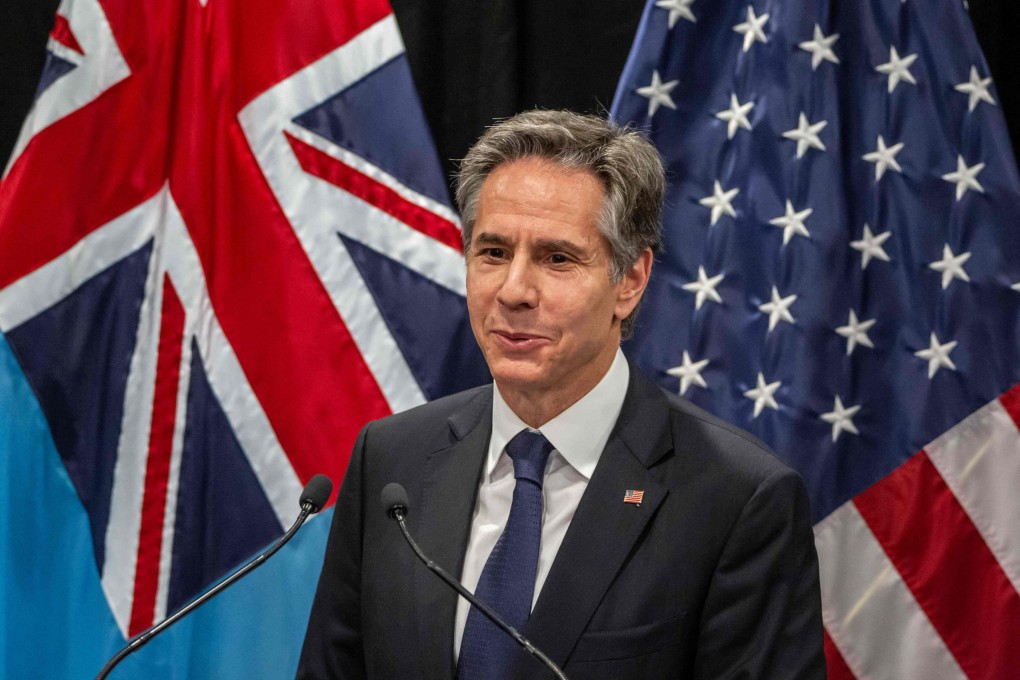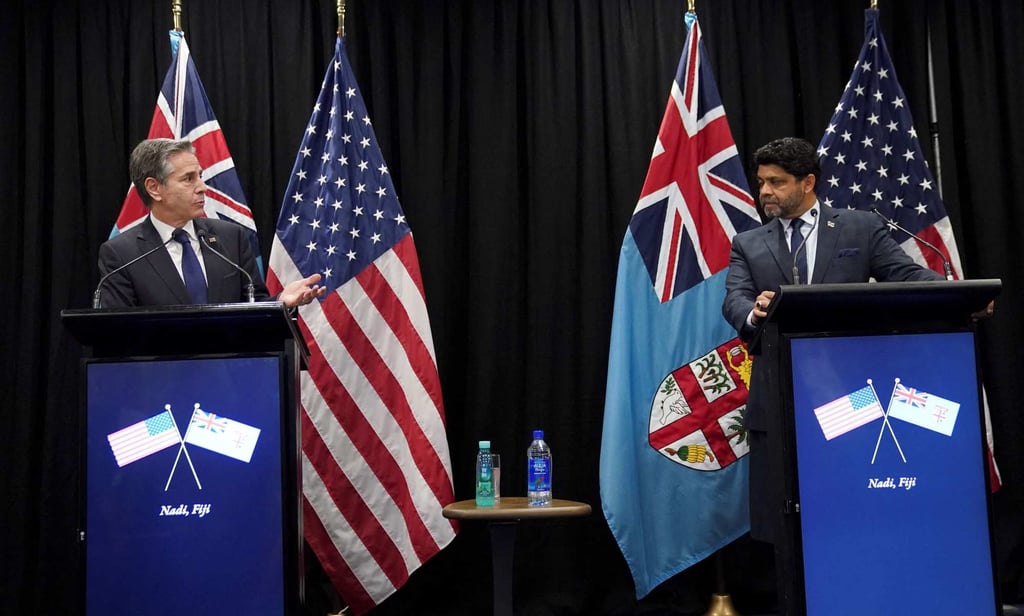Advertisement
Pacific nations disenchanted with Australia, China cautiously welcome US re-engagement
- US Secretary of State Antony Blinken visited Fiji this week as Washington expands its presence in the Pacific, including opening an embassy in the Solomons
- Nations’ doubts remain over how steadfast the US can be after years of being marginalised, and destabilising impact of China’s outreach: analyst
Reading Time:4 minutes
Why you can trust SCMP
49

When US Secretary of State Antony Blinken pledged to expand Washington’s presence in the Pacific nations last week, he was quick to stress that this move was not fuelled by security concerns.
Rather, the United States sees its “long-term future in the Indo-Pacific”, Blinken said during a stop in Fiji after his visit to Australia, underscoring the push by the Biden administration to strengthen alliances and build a stronger presence in the region to counter China’s growing regional and global footprint.
Blinken, the first US secretary of state to visit Fiji in almost four decades, said Washington would support climate change efforts and expand Covid-19 vaccine access in the region, which consists of 15 independent island nations spread across Hawaii, Asia and Australia, in addition to tens of thousands of islands, islets and atolls.

The US will also open an embassy in the Solomon Islands, one of 18 members of the Pacific Islands Forum (PIF) whose members Blinken met on Saturday, during which the official reinforced America’s commitment to the region and the PIF’s “critical role in driving regional action”.
Advertisement
A dialogue partner, China has also engaged with the PIF, having provided US$1.08 million in cooperation funds to the forum secretariat and pledged to work with the private sector to promote business in the region by facilitating export opportunities and attracting investments.
But even after the visit, doubts remain over whether Washington will be a long-term partner for a region grappling with climate change issues ranging from rising sea levels and coastal flooding and erosion to overfishing and failure of subsistence crops that pose threats to their economies.
In recent years, the sparsely-populated region has found itself propelled into the middle of growing geopolitical rivalry between the US and its allies on one hand, and China on the other.
Advertisement
Select Voice
Select Speed
1.00x